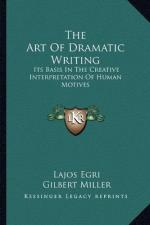
|
| Name: _________________________ | Period: ___________________ |
This quiz consists of 5 multiple choice and 5 short answer questions through Book II: Character, Chapters 4 - 9.
Multiple Choice Questions
1. What does Lajos Egri claim to be the premise of "Romeo and Juliet"?
(a) "Great love defies even death."
(b) "Ruthless ambition leads to its own destruction."
(c) "Love rewards death."
(d) "Blind trust leads to destruction."
2. What term refers to the leading character, hero, or heroine of a drama or other literary work?
(a) Antagonist.
(b) Protagonist.
(c) Friend.
(d) Interest.
3. Who is Romeo's cousin in "Romeo and Juliet"?
(a) Mercutio.
(b) Abram.
(c) Friar John.
(d) Benvolio.
4. Whom does Oedipus marry?
(a) Jocasta.
(b) Ione.
(c) Phoebe.
(d) Acredes.
5. When was Lajos Egri born?
(a) 1877.
(b) 1888.
(c) 1885.
(d) 1899.
Short Answer Questions
1. In Book II: Character, Chapter 3: The Dialectical Approach, the author exemplifies his approach by creating a female character who turns to _____.
2. "Romeo and Juliet" begins with a feud between the Capulets and _____.
3. What childless widow is friends with Nora in "A Doll's House"?
4. According to the author, characters must do what, for if a character is the same way in the beginning as he is in the end, the play is bad?
5. The antagonist in a play or work of literature faces off against _____.
|
This section contains 202 words (approx. 1 page at 300 words per page) |

|




